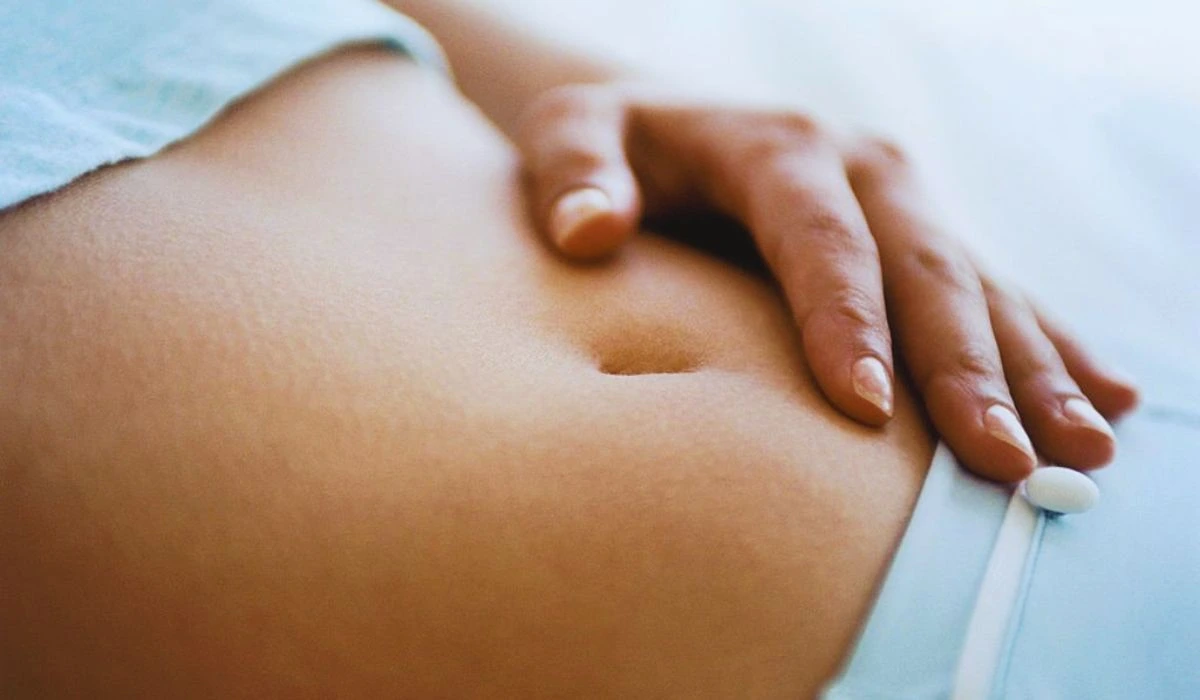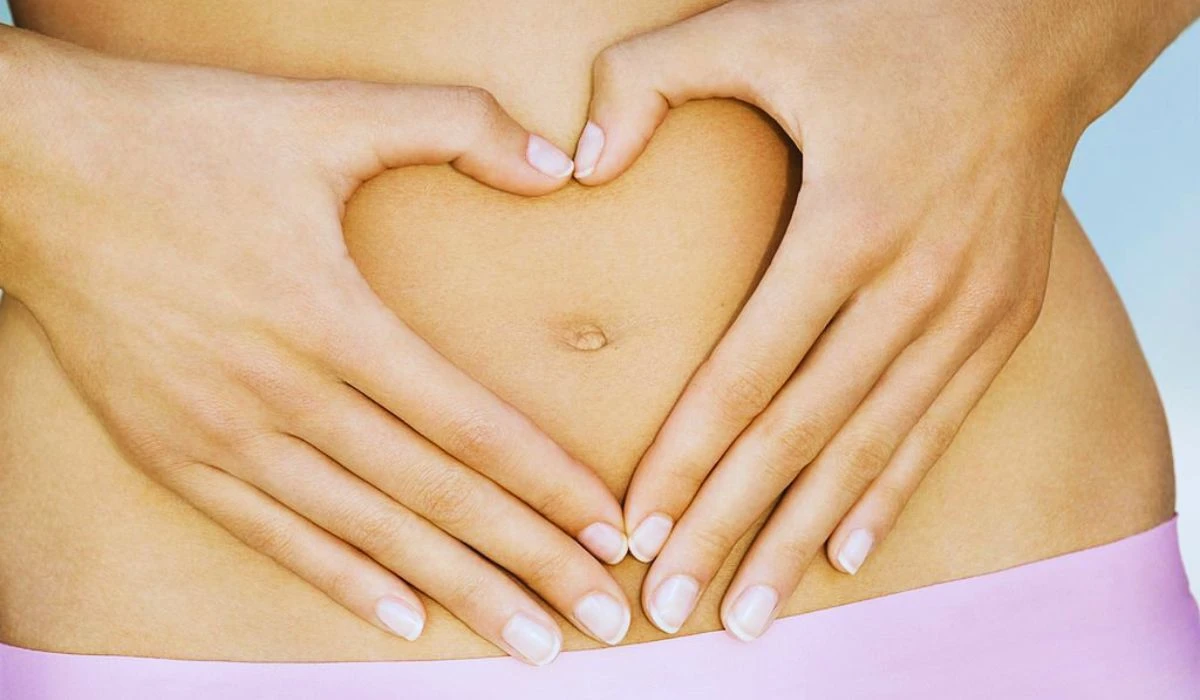The navel, or belly button, is a part of the human anatomy with a peculiar and frequently neglected function. Even though it’s a relatively little area of our body, a belly button infection can cause a surprising amount of pain and distress.
Bothersome and uncomfortable belly button infections are something many individuals may experience. This article sheds light on causes, symptoms, and possible remedies.
Symptoms Of Belly Button Infection
Belly button infections can bring discomfort and pain. Signs of a potential infection include redness, swelling, discharge, itching, and tenderness. Pus or a foul smell may indicate a problem that needs attention.

It’s important to observe any changes in the appearance or sensation of your belly button. Poor hygiene, moisture build-up, or an allergic reaction to fabrics can cause infections.
Causes Of Belly Button Infection
To better understand the causes of belly button infection, explore the factors behind it and gain insight into potential remedies. Poor hygiene, piercings and jewelry, and bacterial or fungal infections contribute to this condition. Let’s delve into each of these sub-sections, examining their role in causing belly button infections.
💠 Poor Hygiene
Poor cleaning of our belly buttons can lead to the build-up of dead skin cells, oil, and lint. This is an ideal environment for bacteria to thrive and cause inflammation and infection.
Not drying the belly button fully after showering or swimming can also contribute to infection. Trapped moisture in the navel is a great breeding ground for bacteria.
Tight clothing or accessories that rub against the belly button can irritate the skin and create small breaks or cuts. These openings are entry points for bacteria, increasing the risk of infection.
💠 Piercings And Jewelry
Sterilization is key! Poorly sterilized tools can bring bacteria into a piercing site. Also, low-grade jewelry made of materials like nickel can cause allergies and infection.
Moreover, tight or dangling jewelry can cause skin inflammation. Cleaning and maintenance of piercings are essential for avoiding bacterial growth. Furthermore, touching, twisting, or playing with the jewelry should be avoided to keep bacteria away.
Take extra precautions around warm and moist areas such as swimming pools and hot tubs, and remove jewelry before engaging in such activities.
💠 Bacterial Or Fungal Infections
Staphylococcus aureus is a bacteria commonly present on our skin. It can cause infection if it gets into the belly button through an open wound or piercing. Another bacteria that can cause disease is Escherichia coli (E. coli). This bacteria is usually found in the gut, yet it can migrate to the belly button too.
Candida albicans is a fungus usually found in our bodies. Growing too much due to things like weak hygiene or a weakened immune system can lead to fungal infections in the belly button.
Remedies For Belly Button Infection
To effectively address belly button infection, equip yourself with the right remedies. Clean the area, apply topical treatments, and use warm compresses to alleviate discomfort and promote healing.

✅ Cleaning The Area
Gently clean your belly button with warm water. Soak a cloth or cotton ball in warm water and dab the area. Put some mild soap or saline solution on the cloth and clean your belly button with gentle circular motions.
Rinse off any soap residue with warm water and pat dry with a soft towel. Make sure your belly button is completely dry before covering it with loose-fitting clothing that allows air circulation.
✅ Applying Topical Treatments
Treat your belly button infection with topical treatments! Here’s a 3-step guide:
- Wash the area with mild soap and warm water. Pat dry.
- Apply a thin layer of an antibacterial ointment. Follow the instructions on the packaging.
- Cover with a sterile dressing or bandage. Change it regularly.
Plus, here are some tips for enhanced effectiveness:
- Keep the area clean and dry.
- Wear loose-fitting clothes that allow air circulation.
- Consult a healthcare professional if symptoms persist.
✅ Using Warm Compresses
- Start by washing your hands with soap and water to stay clean.
- Get a clean washcloth and make it warm, but not too hot.
- Squeeze out any excess water and put the cloth on your belly button.
- Keep it on for 10-15 minutes.
- Then remove it and dry the area.
- For better results, do this multiple times a day and keep your belly button clean.
- To make it even more effective, add a few drops of tea tree oil or apple cider vinegar to the warm water before applying the compress. These have antibacterial properties that can help treat the infection.
With these tips, you can find relief from a belly button infection and speed up the healing process.
When To Seek Medical Attention
Let’s discuss the appropriate course of action regarding medical attention. If you notice signs of infection near your belly button, it is crucial to seek immediate medical attention. This includes any redness or swelling, as well as any severe pain or discomfort.
Additionally, if you experience an unpleasant odor or discharge, it is important not to ignore it and consult a healthcare professional. Furthermore, if you develop a fever, it is advisable to seek prompt help.
These symptoms should not be taken lightly, particularly if you have recently undergone abdominal surgery or have a weakened immune system. Even mild symptoms should be reported to your healthcare provider for proper evaluation and guidance. Consulting a healthcare professional is always a pro tip in such situations.
Conclusion
Treating belly button infections requires various remedies. Warm water and mild soap, antibiotic ointments as prescribed by a healthcare professional, and keeping the area dry should help. Self-diagnosis or self-medication is not recommended, as certain infections need oral antibiotics or other medical interventions.
If you have diabetes or a weak immune system, you must take extra precautions to avoid and manage belly button infections. Monitor the area for redness, swelling, discharge, or foul odor regularly.
Maintaining good health also helps prevent belly button infections. Balance your diet, exercise, and practice stress management to strengthen your immune system.
This article is only a guide. If you have any concerns or persistent symptoms related to belly button infections, consult a healthcare professional.
Also Check: Understanding Common Ear Infections: Causes, Symptoms, And Prevention!

